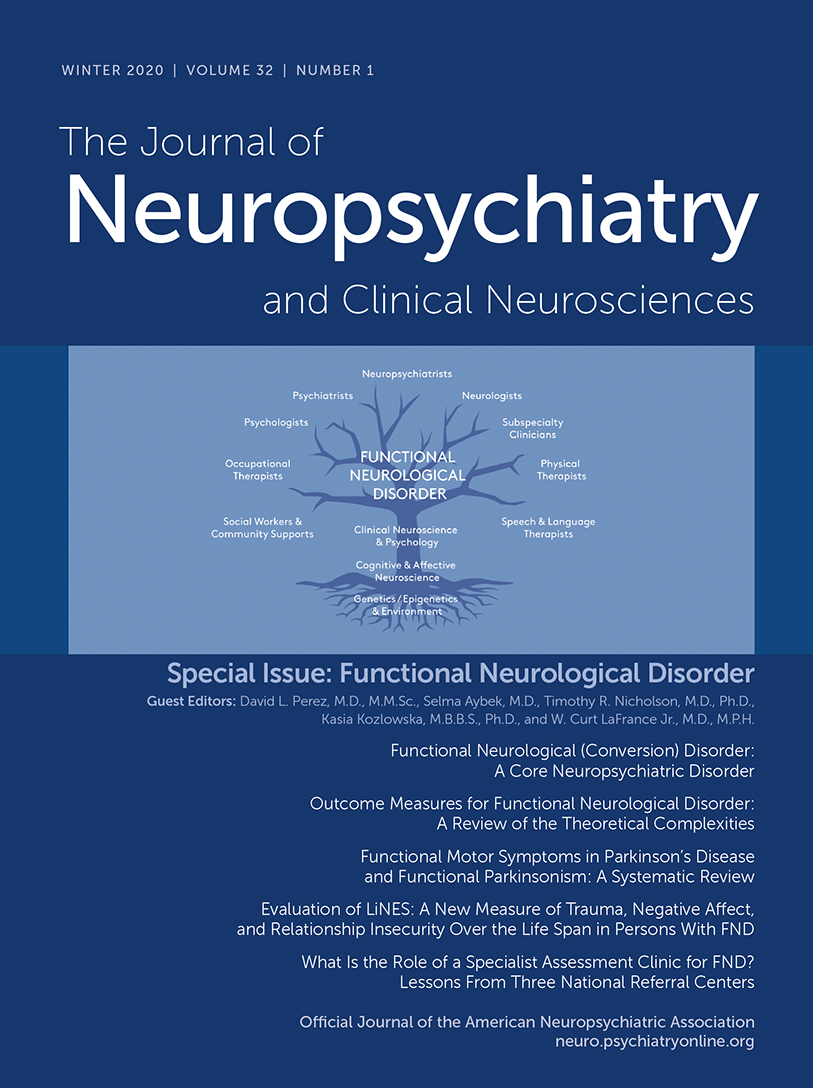Outpatient Physical Therapy for Functional Neurological Disorder: A Preliminary Feasibility and Naturalistic Outcome Study in a U.S. Cohort
Abstract
Objective:
Despite promising research and consensus recommendations on the important therapeutic role of physical therapy for motor functional neurological disorder (FND), little is known about the feasibility and potential efficacy of implementing physical therapy for this population in a U.S.-based outpatient program. Given health care system differences internationally, this is an important gap in the literature.
Methods:
In this retrospective cohort study, the authors investigated the relationship between treatment adherence and clinical outcome in a hospital-based outpatient physical therapy clinical program. Medical records of 50 consecutive patients with motor FND referred from an FND clinical program were reviewed. The physical therapy intervention included a 1-hour initial assessment and the development of individualized treatment plans guided by published consensus recommendations. Statistical analyses included nonparametric, univariate screening tests followed by multivariate regression analyses.
Results:
In univariate analyses, there was a statistically significant positive correlation between the number of sessions attended and clinical improvement. This relationship held when adjusting for demographic variables, concurrent psychogenic nonepileptic seizures, and other major neurological comorbidities. In a post hoc analysis of the subset of individuals with available gait speed data, posttreatment 10-meter gait speed times improved compared with baseline measurements. Baseline neuropsychiatric factors did not correlate with clinical improvement.
Conclusions:
This preliminary, retrospective cohort study demonstrated that treatment adherence to a U.S.-based outpatient physical therapy program was associated with clinical improvement. Prospective observational and randomized controlled trials are needed to further optimize physical therapy for patients with functional motor symptoms in the outpatient setting.



